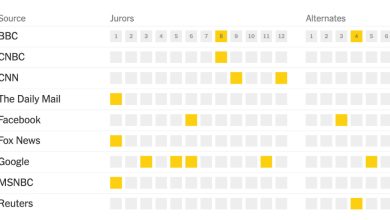My Times: Career Advice From a Career in the Trenches

Thirty years ago, I arrived at The New York Times as an intern. I never planned to be a “company man.” I had no real plan. This is just the way things worked out.
Young people often ask me for career advice. Well, here it is.
Try to be the best at what you do. The money will take care of itself.
During a career conference at my college, I remember a journalist describing what I thought was an appallingly lower than average starting salary for newspaper journalists. Hyperventilating, I excused myself, ran to the bathroom and threw up. I had been poor my whole life, and I remember thinking, “I can’t go to college and still be poor!”
But I pulled myself together and came to this resolution: I would simply strive to be the best at what I was doing, and I would let the money take care of itself. Journalism is mission work. You don’t enter this profession with the same ambitions as an investment banker.
In business, persistence pays off.
I got my internship at The Times by not taking no for an answer. When I arrived at The Times’s booth at an Atlanta job fair in the early ’90s, the recruiters told me I wouldn’t be able to interview because applicants had to sign up in advance, and their dance card was full.
I said that I understood, but that I was going to wait there until someone didn’t show up for the interview. I sat for about six hours, so long that they seemed to forget I was there. I listened in as other applicants sat for interviews, and as the recruiters discussed each candidate when they left. It was the absolute best opposition research. When one of the recruiters finally relented and offered to interview me, I knew the perfect way to answer every question.
The next day, the recruiters told me that I had so impressed them that they called back to New York overnight and created a graphics internship just for me.
Others may have more advantages than you, but no one has more hours in the day than you. No one can outwork you unless you let it happen.
My first newspaper internship was at The Shreveport Times. There, I decided that my boss would never see me come or go. I would always arrive before him and leave after him, even if I had to organize office supplies into the evening.
When I got my first full-time job at The Detroit News, I decided that it wasn’t enough to learn to do my job, I needed to learn every job connected to mine. There were researchers in the graphics department. I made them an offer: I would get their lunches and run their errands if they would let me watch them work. They never asked me to do the menial tasks, but they did let me watch them work with sources and even pitch in. I was working two shifts every day — one for free and one for pay — but the experience I gained was invaluable.
This suited me. I wouldn’t call myself a workaholic, but I like my work, and I was young. Young people should work as hard as possible because there will come a time when the aging body simply can’t handle it.
Find your workplace tribe.
The Times I arrived at 30 years ago is a far cry from The Times of today. I once heard it described as “a knife fight among valedictorians,” with managers who were mean and who seemed to have been rewarded for being so.
That kind of hostile work environment would never be tolerated at The Times today, but if you ever find yourself in such a situation, remember, you’re probably not alone. Anywhere you go, you have to find your workplace tribe — the other earnest, good-natured employees who can be your sounding board and source of support.
Hopefully we are all coming to understand that the skulduggery of office politics is unfair, unnecessary and creates a counterproductive environment. But with help from my tribe, I survived that period, and I have to admit, I thrived. It was sport to me. I never picked a fight, but I never ran from one.
Everyone you work with or for is a reference.
It is estimated that up to 80 percent of job listings are never posted. Often, someone looking to hire simply askstrusted people if they know of a good candidate. When those opportunities arise, you want your name to be at the top of their mind — as someone smart, collegial and hard working. This is why you must give your all in every job you have, no matter how small, no matter if it has nothing to do with your ultimate career and ambitions. And you must treat everyone around you with respect. Because anyone who knows you could give you a reference, without you being the wiser.
No one cares about your disadvantages. Overcome them.
I didn’t go to an elite boarding school or an Ivy League college, but many of the people whom I would work with did, and many of the people I would compete with did. I resolved early on that I would have to compensate, as much as I could, for any deficiencies in my educational pedigree. I read the classics that had never been assigned to me and as many new books as possible. I watched documentaries nonstop as well as the news. I visited museums and took classes if time permitted. I told myself that no one would ever make a reference to “The Merchant of Venice” again without me understanding it.
Managers must be managed.
The verb here may not be the most precise, but this formulation is easiest for me to remember.
It is not enough to know the goals and expectations your manager have set for you. You must know the goals and expectations they have set for themselves, your department and the company. You should try to understand what the company expects of them, because only when you see this bigger picture can you fully appreciate how you fit into it.
I have so much more advice, but not enough space to share it all. This is, I think, a good start. Some of it may sound archaic. But my mission here is simply to be honest rather than hew to modern mores.
I came into the work force in a different time, when a Black, country boy with a heavy Southern accent could easily have been written off and reduced. I refused then, and I refuse now, to let that happen.
The Times is committed to publishing a diversity of letters to the editor. We’d like to hear what you think about this or any of our articles. Here are some tips. And here’s our email: [email protected].
Follow The New York Times Opinion section on Facebook and Twitter (@NYTopinion), and Instagram.




